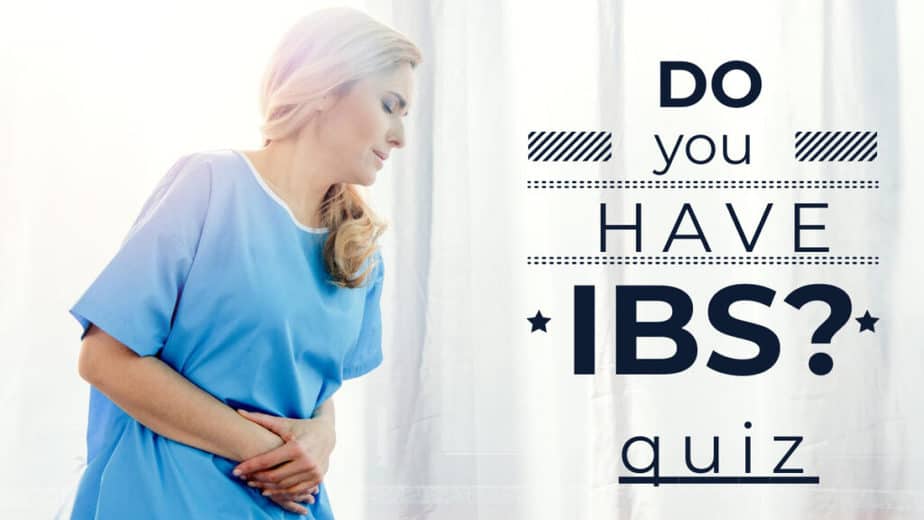IBS and Motion Sickness are two conditions that can bring bouts of nausea and uneasiness by themselves, as well as together. Learn more about the connection between the two and how to prevent queasiness.
Motion sickness is a condition where people feel sick when they move their head or eyes rapidly. The symptoms usually start within five minutes after starting to move and last for about 30 minutes.
Irritable Bowel Syndrome (IBS) is a common gastrointestinal disorder that affects over 10% of the population worldwide. Symptoms of IBS include diarrhea, constipation, pain, bloating, gas, and changes in appetite.
There is no cure for IBS. But it can be controlled with lifestyle changes and medications.
Before we get into the top tips to feel better from motion sickness and IBS, let’s first cover some motion sickness basics, why it happens, and tips on how to prevent it.
What is Motion Sickness?
Motion sickness is caused when the vestibular system (inner ear) senses motion and sends signals to the brain to compensate for it.
The inner ear contains three parts: the semicircular canals, the otoliths, and the utricle. These parts detect linear acceleration, angular velocity, gravity, and head position.
When any of these inputs change, the brain receives information about the changes and interprets them as motion.
People suffering from motion sickness may experience nausea, dizziness, headache, sweating, dry mouth, abdominal pain, distended stomach, fatigue, and sometimes vomiting.

Does IBS Cause Motion Sickness?
IBS does not cause motion sickness, but the symptoms can overlap and some people have both conditions.
Traveling by air or vehicle can be made even worse for people who suffer from IBS because they may experience IBS-related nausea, vomiting or GI distress due to the motion.
Here are 11 tips to control motion sickness and IBS.
How to Manage Motion Sickness and IBS
1. Avoid Alcohol and Caffeine
Alcohol and caffeine are known to trigger motion sickness. So if you want to prevent motion sickness or lessen the risk of nausea, stay away from drinking alcohol or caffeinated drinks.
Both types of drinks can exacerbate nauseous feelings. Caffeine can also increase heart rate and blood pressure, leading to even more severe symptoms and a jittery feeling. This can also lead to headaches, anxiety, and dehydration.
Avoid drinking too much coffee, tea, or carbonated beverages. These drinks contain caffeine, which can make you feel more sick. In many people, coffee and caffeine can trigger bowel urgency and diarrhea as well as a nauseous feeling. Carbonation may make regurgitation, bloating and nausea worse.
Learn more with these in-depth articles:
2. Eat Small Meals More Frequently
Eating smaller meals throughout the day will help you feel full longer, but also prevent the extremes of being too hungry or full.
A lack of food can make you feel light-headed and weak. Eating too much food can leave you feeling nauseous and can increase your IBS symptoms, so it’s best to avoid large meals just before you travel.
3. Drink Plenty of Water
Keeping yourself properly hydrated can help prevent motion sickness. Sometimes dehydration can make you feel nauseous. A lack of adequate water intake can also lead to constipation and fullness, which may exacerbate abdominal discomfort.
Drink plenty of water during the journey if you start to feel uneasy. If you’ve been drinking alcohol and/or caffeine, drinking water can help flush those toxins out of your system.
Learn more about IBS and Fluid Retention.
4. Take a Break Every Hour
Occasionally, if you’re doing something for too long at one time, you can start feeling nauseous. If you find yourself feeling nauseated, stop what you’re doing and rest until you feel better.
Taking regular breaks will stop the uneasiness from building up over time. It will also give you some relief from the discomfort of traveling.
If you’re on the road, take breaks at rest stops. If you’re in a train or plane, get up and walk around for a few minutes to change things up.
5. Try Chewing Gum
Chewing medicated gum can help relieve nausea because it’s a fast and effective way to release the drugs to manage motion sickness.
Brand names like Dramamine offer medicated chewing gum.
Chewing regular gum has also been shown to help with visually induced motion sickness (VIMS) from VR simulations and games. Make sure to avoid sugar-free gums which contain artificial sugars that can trigger diarrhea.
6. Choose a Comfortable Seat in the Front
Sitting in the front of a car, boat, or train seat can make you feel less queasy. Uncomfortable seats will also make you feel worse, so be sure that it’s comfortable.
There’s less movement in the front, while the further back you are, you will feel like you’re being whipped around. The bumps will also feel stronger in the back.
Learn more about what to do if you have IBS Pain With Sitting.
7. Wear Loose and Comfortable Clothing
Loose clothes will allow air to circulate freely around your body. Wearing tight clothes can restrict blood flow and cause overheating. In the case of abdominal pain, nausea or fullness, sitting with tight fitting clothing may increase pressure on the abdomen and worsen symptoms.
Comfortable clothing includes your shoes. Shoes that fit correctly can help prevent foot discomfort and muscle spasms.
8. Take Deep Breaths and Relax
Breathe deeply and slowly. Deep breathing reduces anxiety and tension, helping your body and mind relax.
Practicing relaxation techniques can help you cope with motion sickness. Try taking slow, deep breaths, counting backwards from 100, or focusing on an object.
Focusing on your breath can help you stay calm and relaxed. You can even try meditation, yoga, or tai chi.
9. Take Medication For Immediate Relief
Some medications can help alleviate motion sickness. Talk to your doctor before trying any new medications.
If you need immediate relief, however, take Dramamine when you are experiencing motion sickness. You can also take a dose prior to the possibility of having motion sickness; e.g., prior to going on a boat.
10. Keep Your Eyes Open and Focused
Try to keep your eyes open while traveling. Looking out the window and focusing on objects far away will help reduce jumps in your surrounding environment.
Keep your eyes open during the journey. This will help you see things clearly and avoid getting drowsy.
11. Take Probiotic Supplements
Take probiotics for gut health to resupply your body with beneficial bacteria in order to reduce the bad types of bacteria from taking over your gut.
This is a longer term solution to help prevent future episodes of nausea and motion sickness.
You can also take digestive enzymes with each of your meals in order to help you break down the food you eat. This will assist your digestive system and may improve stomach emptying to reduce the risk of nausea and vomiting from IBS or motion sickness.
IBS and Motion Sickness Final Thoughts
There are many ways to control IBS and motion sickness. It may not be easy at first but if you stick to these tips, you’ll find yourself feeling better sooner than later.
If you liked this article, check out these related articles:
- What are Some IBS Symptoms?
- How Common is IBS?
- IBS and Candida Relationship
- How to Relieve IBS Pain?
- Is a Gluten-Free Diet Good for IBS?
- Is a LOW Fodmap Diet Good for IBS?
- What Does Iberogast Do for IBS
- Cognitive Behavioral Therapy for IBS
Sources
- National Library of Medicine: “Comparison of Seven Commonly Used Agents for Prophylaxis of Seasickness”
- NCCIH: “Irritable Bowel Syndrome: In Depth”
- NCBI: “The epidemiology of irritable bowel syndrome”
- National Library of Medicine: “Chewing gum reduces visually induced motion sickness”





